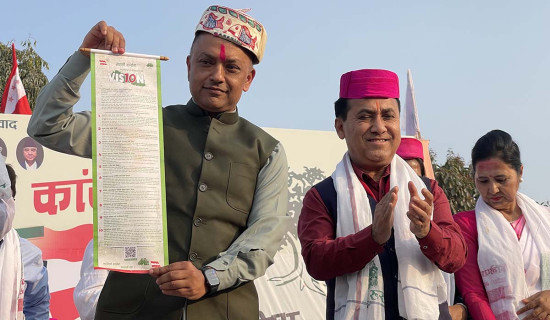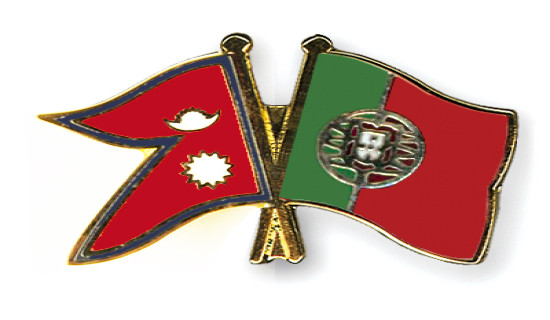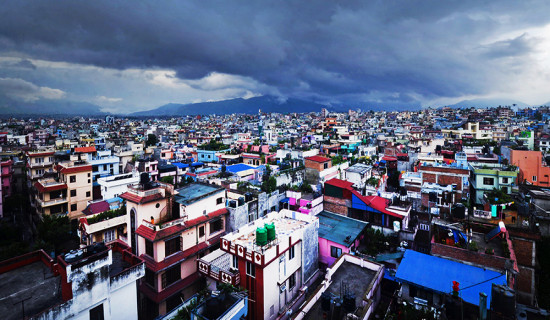- Thursday, 19 February 2026
Valour, Missteps And Future Of Gen Z
History doesn’t repeat itself, but it frequently rhymes. Its echoes drift across centuries, sometimes faint, sometimes thunderous, carrying lessons disguised in the attire of different ages. The rhythm feels unmistakably familiar: a nation cornered, its soul tested, its people asking who will step forward to bear the unbearable.
Nepal's Prime Minister Bhimsen Thapa, some two centuries ago, opposed British East India Company cannons with nothing but Gorkhali courage and unfounded hopes in distant friends. Today, comedian-turned-war-time leader Volodymyr Zelenskyy of Ukraine stands up to Russian missiles with speeches, online forums, and an indomitable will. Back in Nepal's own protest-infested streets, Gen Z, a faceless, horizontal wave of youngsters with nothing but hashtags, rails against corruption and political stalemate. Three utterly different leaders, yet a hauntingly similar question binds them: What is it to lead when the soul of a nation is threatened?
Shortsightedness
During the reign of Prithvi Narayan Shah, Nepal was likened to a yam between two boulders. By establishing a balanced diplomacy between the two giants, he ensured Nepal’s survival in the form of a complete yam. Under Bahadur Shah, however, Nepal became like gelignite between the two boulders - exploding outward to expand Nepal’s borders from the Tista in the east to Kangada in the west, making the very name ‘Gorkhali’ send shivers down the spine of the world. Yet under Bhimsen Thapa’s shortsighted leadership, Nepal was forced to shrink back within the Mechi-Mahakali boundaries.
Courage detached from foresight is destructive. Bhimsen's big plan was to rely on Napoleon's France. He believed that if Europe was in flames in the melting pot of continental war, Britain would have no time to suppress Nepal. It was a precarious gamble born of sentiment rather than reason. History, though, was cruel: Napoleon was defeated at Waterloo in 1815, France was destroyed and Nepal stood isolated at the doors of empire.
Eventually, the Anglo-Nepal War (1814–1816) concluded in humiliation. The Treaty of Sugauli (1816) deprived Nepal of almost one-third of its land. The productive Tarai plains, the strategic heartlands of Kumaon and Garhwal - all lost. Nepal decreased not just territorially but psychologically, wounded by betrayal and loss. Bhimsen Thapa remains a paradoxical figure: a patriot whose charisma inspired resistance, yet a strategist whose miscalculation wounded Nepal for generations. His story whispers a timeless truth to small nations: velour may inspire, but without prudence and diplomacy, it cannot protect sovereignty.
Fast forward two centuries to Kyiv, February 2022, as Russian tanks advanced and missiles pounded, the world expected Ukraine's president to disappear into exile. Instead, the comedian-turned-leader in olive-green combat fatigues, Zelenskyy, announced: "I need ammunition, not a ride." In one utterance, he rewrote his own script, from entertainer to wartime icon.
But beyond the great symbolism is a troubling parallel with Bhimsen Thapa. Zelenskyy also placed vast faith in distant allies. Yes, assistance arrived: advanced weaponry, billions in economic aid, foreign policy solidarity. But defence of the sort that would reverse the course of the war? Not a whisper. Pluck can evoke opposition, but when strategy demands too much from distant friends, the nation bears the unacceptable cost. Ukraine still bleeds, cities are laid in ruins, its millions are displaced.
Right now, Nepal’s streets have become a battleground. Students in school uniforms stood shoulder to shoulder with young professionals in office shirts. Their placards were not painted posters but glowing phone screens. Their ammunition was not khukuris or missiles, but hashtags, chants and live streams that turned streets into a digital battlefield for change. This is chorus leadership, not solo. No solo hero, but being guided by the crowd. Each youth is a spark, but collectively, they are a storm. Leadership in such horizontally flowing dynamics is collective, participative and digital.
Chorus of a new age
From the forts of Malaun to the bunkers of Kyiv to the restless streets of Kathmandu, leadership has always been tested not by peace but by crisis. Bhimsen Thapa, the patriot who overreached, scarred Nepal with loss; Zelenskyy, the actor who defied but depended, holds Ukraine together in bleeding defiance; Nepal’s Gen Z, the chorus of a new age, burns for reform but must now learn the art of endurance. History rhymes in warning: courage alone immortalizes, but only strategy sustains.
For Nepal, the call is urgent - turn fire into foresight, translate chants into policies and anchor survival not in distant allies but in neutrality, resilience and reform. Only then can the flame of defiance light not just the streets but the very path of history. The lesson is clear: small nations survive not by projecting too far outward, but by standing firmly inward - with foundations in neutrality, vision and endurance.
(The author is a consultant engineer.narottamnepali@gmail.com)



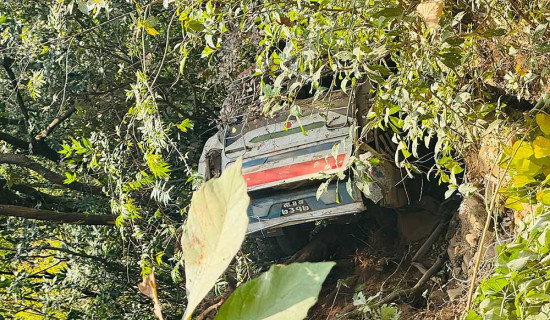
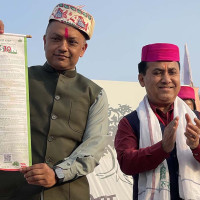
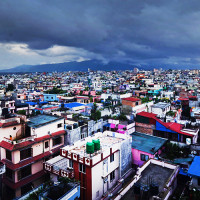


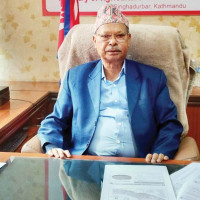
-original-thumb.jpg)
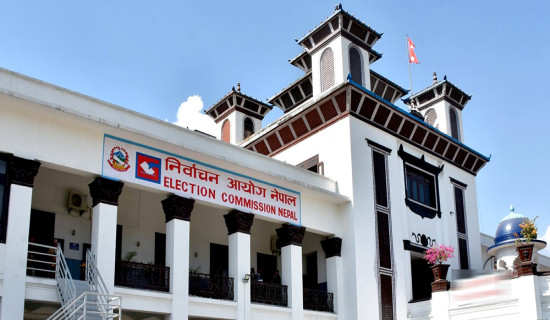
-original-thumb.jpg)

